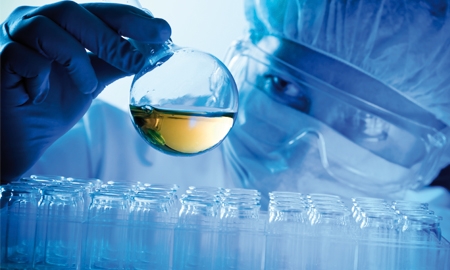The largest pharmaceutical market in the Gulf Cooperation Council, Saudi Arabia has experienced an unprecedented growth in the demand for pharmaceuticals in recent years, which is driven by changes in the legislative framework, a fast-growing population, increasing life spans and a surge in lifestyle-related diseases.
According to recent expert evaluations, the Saudi pharmaceutical market registered sales worth $5.1 billion in 2012, representing an enormous share of the GCC’s estimated $8.5 billion market. Furthermore, the sector is expected to grow by 11 per cent a year between 2013 and 2015. Much of this growth will be driven by the private sector, which is expected to account for two-thirds of it.
Pharmaceutical multinationals like Pfizer, GSK, Novartis and AstraZeneca command a market share of 75 per cent, while local companies are slowly increasing their market share by making generic versions of drugs or collaborating with multinationals to market and produce patented drugs locally. Indeed, Saudi Arabia leads the region in terms of the number of generic brand manufacturers, although raw materials are primarily sourced from abroad. Also, just 15 per cent of local production is consumed by the Saudi market while the remainder is exported.
The pharmaceutical sector contributes to the sustainable economic and social development of the kingdom in many ways. Its growth supports economic diversification and job creation to the point where there is a shortage of qualified Saudi pharmacists that local companies and authorities are working to fill.
The sector supplies private and public healthcare facilities and patients with much-needed medications. Indirectly, it fosters the development of related sectors across the economy, such as glass and petrochemicals for packaging.
Most importantly, pharma companies play an important role in educating the young Saudi population about the importance of maintaining a healthy lifestyle to prevent a further increase in the rates of obesity, diabetes, heart disease and certain types of cancer. This aspect is of great consequence given that the predominantly young Saudi population suffers from high rates of these ailments. A quarter of Saudi adults between the ages of 27 and 79 have diabetes, compared to the average for the MENA region of one in nine people.
Tamer Group, one of the three largest domestic pharmaceutical companies, along with Spimaco Addwaeih and Banaja Holdings, understands the important role it plays in creating awareness about health education and disease prevention. As such, the group engages with the Saudi population through holistic approaches that incorporate technology, social media and school and community activities.
| Tamer Group is a prime example of how the private sector contributes to human capacity and community development |
Partnering up with the Ministry of Health, schools, universities, shopping centres and other pharmaceutical companies, the Tamer Group works to raise awareness of the effects of lifestyle-related conditions like obesity, diabetes, hypertension and smoking through building sustainable programmes, such as health education films.
Furthermore, training and hiring Saudis is a priority for the Tamer Group. According to Group Chairman and Managing Partner Ayman Tamer, “Empowering, training, developing and matching the skills and competencies of the Saudi nationals to the requirements of the job market are key to the success of the economy of this country and of the Tamer Group’s future. The private sector needs to focus its efforts to support the government’s programmes of nationalisation and to strive to cover the mismatch in competencies between the educational offering and the practical skills and specialisations required in the private sector, particularly when it comes to healthcare.”
Mr Tamer goes on to mention the shortage of Saudi pharmacists in the kingdom, which is estimated at 30,000 plus, as one of the examples of this mismatch.
It is only fitting that the Tamer Group be involved in the “Saudisation” of the sector, as the origins of the group can be traced to 1922 when a young doctor by the name of Mohammed Said Tamer established the kingdom’s first pharmacy in Jeddah. Today, what began as a modest pharmacy is now a leading distributor of pharmaceutical, medical, food and nutrition, beauty, wellness and prestige products, as well as a pharmaceutical manufacturer.
But growth and prosperity has not derailed Tamer Group from the spirit of philanthropy and service to the community that has characterised it from the very beginning. That spirit continues to this day and pervades all aspects of the group’s operations, as Tamer recognises that human capital is vital to its prosperity and as such is at the centre of its operations, from its commitment towards cultivating its employees to its social programmes.
The group’s strategy to develop its human capital includes a scholarship programme to enable employees to pursue higher education and agreements with various universities in Saudi Arabia to recruit trainees and permanent staff. On-going workshops on topics like healthcare and safety and initiatives like staff exercise and health assessment programmes complement the educational and training offering.
All these reflect the fact that employees are indeed at the centre of the group’s endeavours and help to explain why last year Tamer Group was voted as the second best work environment in Saudi Arabia in Al Eqtisadiah newspaper’s annual ranking.

0 COMMENTS